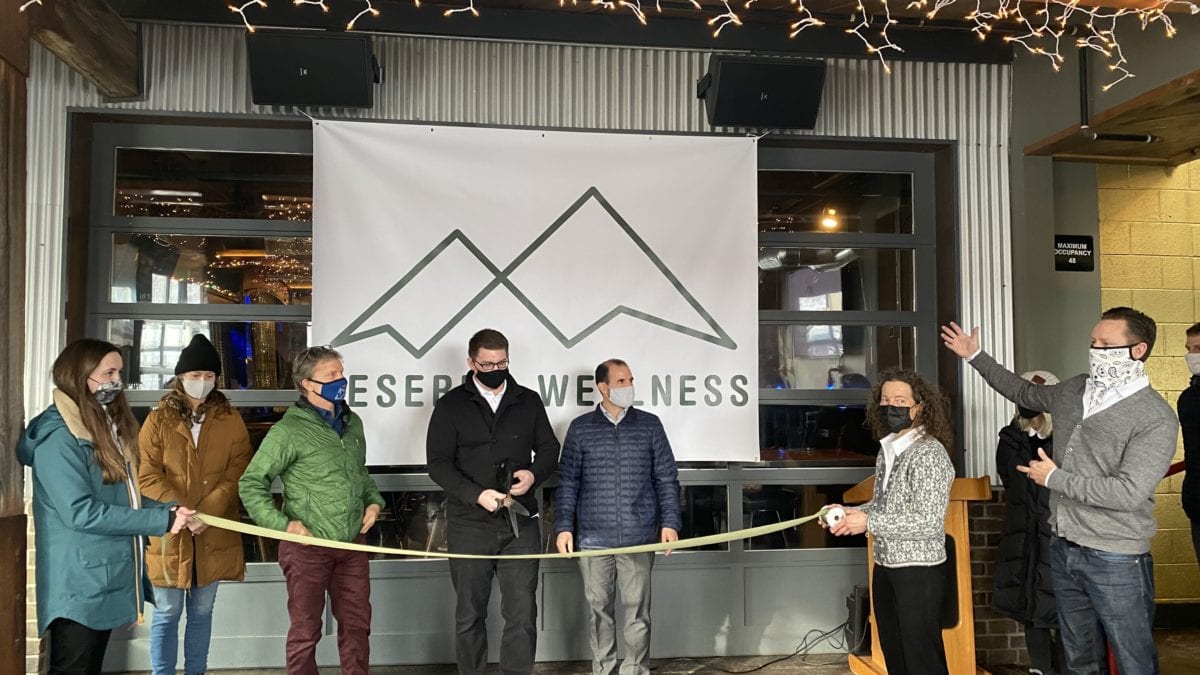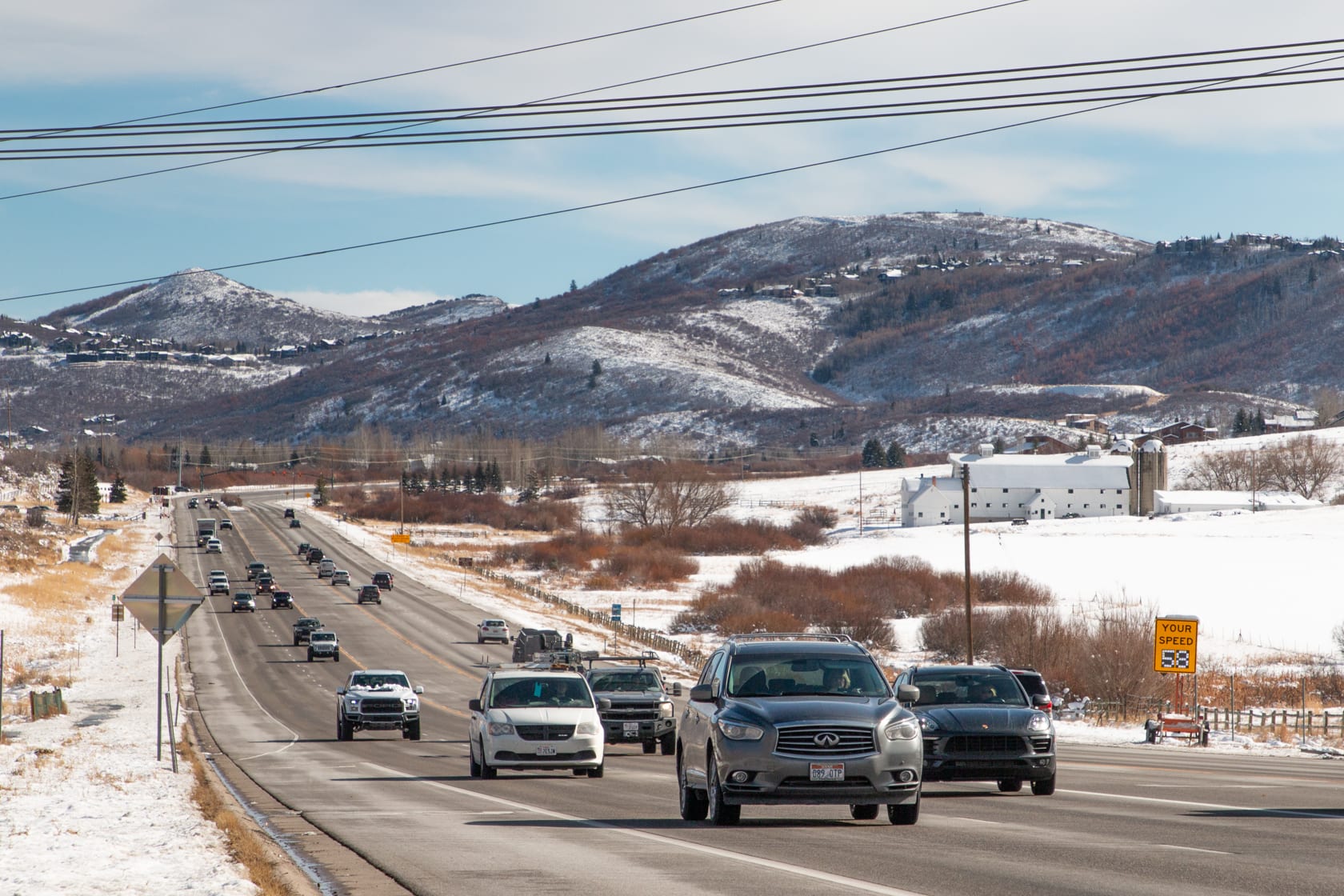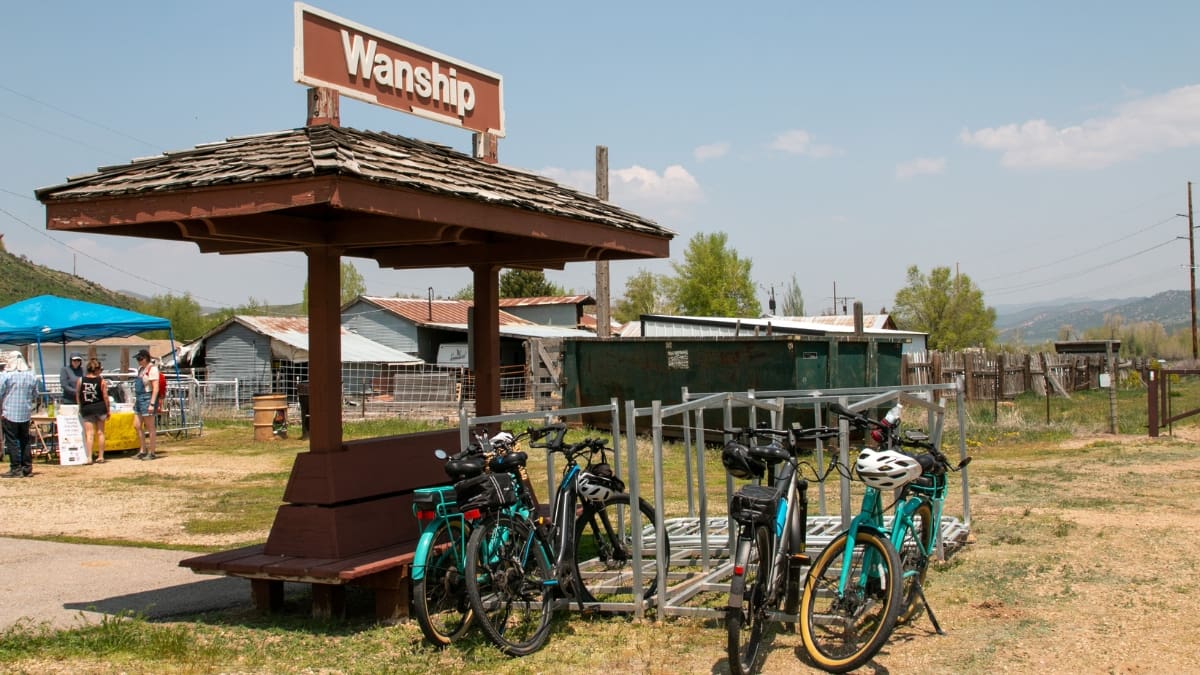News
New Cannabis Dispensary in Park City moves closer to Opening

Pharmacy Manager Brian Woods prepares to ribbon-cut to celebrate Deseret Wellness's new cannabis dispensary. He's joined by Park City Councilman Tim Henney (green jacket), Utah Dept. of Health Center for Medical Cannabis Director Rich Oborn (blue jacket) and Market President Jeremy Sumerix at far right. Photo: TownLift // Michelle Deininger
With the opening of Park City’s first medical cannabis dispensary just weeks away, owner Deseret Wellness celebrated the milestone Wednesday morning in pandemic- and weather-appropriate fashion.
Inside the Boneyard Saloon, which is next door to the Emporium shopping center where the dispensary is located, a symbolic ribbon-cutting event kept people distanced and out of the snow, wind and cold. The event included remarks from Deseret Wellness Market President Jeremy Sumerix and Rich Oborn, director of the Utah Department of Health’s Center for Medical Cannabis, among others.
Following the ceremony, Sumerix led small tours of the basement-level space, which is still being built out. Covid-associated construction delays of all stripes have plagued the project and the pushed opening date out, but the pieces are gradually coming together, Sumerix said.
When complete, the new space will feature an elevator, a glass-fronted secure check-in, videocameras for safety, a large waiting room and a private room for patients to consult with a pharmacist. Sumerix said the finished space will be comfortable, welcoming and designed for safety. Because federal cannabis restrictions prevent bank card use in transactions, the space will offer an ATM along with cashless transactions through Hypur, a bank-to-bank app similar to Venmo.
Deseret Wellness also owns and operates a dispensary in Provo. In Summit County, just under 200 people currently have medical cannabis prescriptions. Prescription medication cards are issued by a half dozen providers who are licensed by the state. Many in the industry expect both of those numbers to increase as public awareness along with cannabis availability ramp up.
In remarks to the group, Carter Livingston, executive director of Utah Cannabis Coalition, highlighted a multitude of benefits the nascent industry would bring to Utah, including jobs and related forms of economic development, agricultural development, and increased societal health and wellness stemming in part from a reduction in opiate use.
Calling himself an “oldish young dude,” Livingston said years of high-impact sports such as pickleball and marathon running had left him with chronic pain that his doctor wanted to treat with opiates. Seeking to avoid drugs with high risk of addiction and overdose potential, he became a medicinal cannabis patient. The success of that treatment led him into advocating to expand opportunities for others with conditions treatable with cannabis.
Desiree Hennessy, executive director of the Utah Patients Coalition, also came to her advocacy work through personal experience as the mother of a son with extreme special needs, whose excruciating nerve pain was not alleviated by any drugs doctors tried. After someone suggested cannabis to her, her son tried it, and the results led her to work toward expanding awareness of the benefits of cannabis, and for the passage of legalizing medical cannabis.
She described her coalition’s work as being a gratifying opportunity to help meet “the quiet need I never realized was there.” Particularly impactful, she said, was the experiences of families with relatives near the end of their lives who were able to transition off incapacitating drugs such as morphine to cannabis, which allows for more lucidity and presence with loved ones in final days. Patients have told her that cannabis treatment has been “a dream come true.”
Appreciate the coverage? Help keep Park City informed.
TownLift is powered by our community. If you value independent, local news that keeps Park City connected and in the know, consider supporting our newsroom.



















